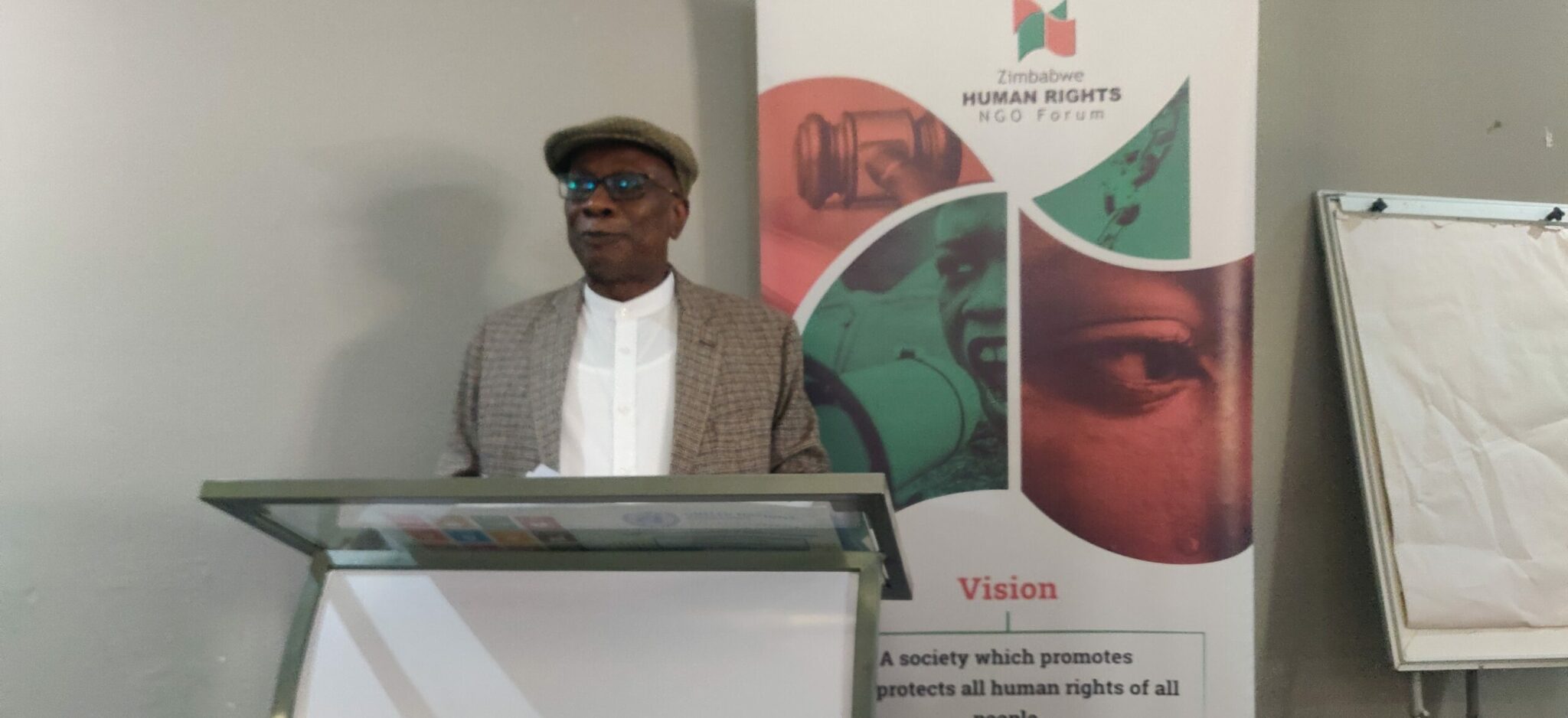Edward Kallon, the United Nations Resident Coordinator for Zimbabwe, has said that Civil Society Organisations (CSOs) are not enemies of the government and there is always room for engagement.
He made these remarks during the CSOs’ UN Human Rights Council Universal Periodic Review (UPR) midterm review meeting, convened by the Zimbabwe Human Rights NGO Forum, National Association of Non-Governmental Organizations (NANGO), and Zimbabwe Lawyers for Human Rights on Thursday in Bulawayo.
“My appeal is that there is always room for dialogue and engagement. With that spirit, nothing is impossible. Let me be frank, at the end of the day, we are all brothers and sisters. Nobody is going to effect change in this country without the full support and participation of civil society. That is the enviable role of civil society, and that is what we admire about it. We need to be proactive, speak with the spirit to engage, and protect rights. Those rights are critical for society to function effectively,” he said.
The ZANU PF-led government has often accused CSOs of being part of a regime change agenda. However, Kallon emphasised that CSOs should be seen as essential partners in national development rather than adversaries.
He elaborated on the significance of the UPR process in promoting and protecting human rights globally, noting that CSOs are at the forefront of human rights advocacy and management.
“Civil Society Organisations’ participation in the UPR process ensures a comprehensive and accurate assessment of a country’s human rights situation. CSOs provide valuable information that might not be available through official channels, including true accounts of human rights abuses and the impact of government policies on the ground. By submitting alternative reports, civil society organizations offer a vast counter-narrative to state submissions, ensuring that the UPR process remains balanced.”
In Zimbabwe, Kallon said CSOs have been instrumental in highlighting critical issues and their contributions have led to several key outcomes.
“Their reports have brought enhanced visibility to certain human rights issues and resulted in pressure on the government to take action. Alternative reports submitted by CSOs also contain detailed policy recommendations, which provide a road map for improving human rights. Often, these policy recommendations are incorporated into the final recommendations.”
He also highlighted the role of CSOs in empowering local communities by involving them in the reporting process, thereby empowering citizens to understand and advocate for their rights.
“This grassroots involvement is essential for sustainable human rights improvements.”
Kallon reminded CSOs of the connection between human rights and Sustainable Development Goals (SDGs) as two sides of the same coin.
“As such, effective implementation of UPR recommendations will significantly accelerate the achievement of the SDGs by promoting human rights, strengthening institutions, and fostering development. For Zimbabwe, integrating UPR recommendations into National Development Strategies ensures that SDGs are achieved in a manner that respects human rights for all citizens. Therefore, as we gather to review the progress made by the government in implementing the UPR recommendations thus far, let us not forget the linkage between human rights and the SDGs. It is very important that we recognize the progress made and collectively work together to ensure continued improvements,” he said.
Meanwhile, he also addressed areas where CSOs fall short, stating that the government, as the duty bearer, needs to go beyond implementing the UPR recommendations and address the root causes of human rights violations and governance issues.
“Despite the significant challenges that civil society organisations may face, they continue to play a crucial role in promoting and protecting human rights,” he said.

